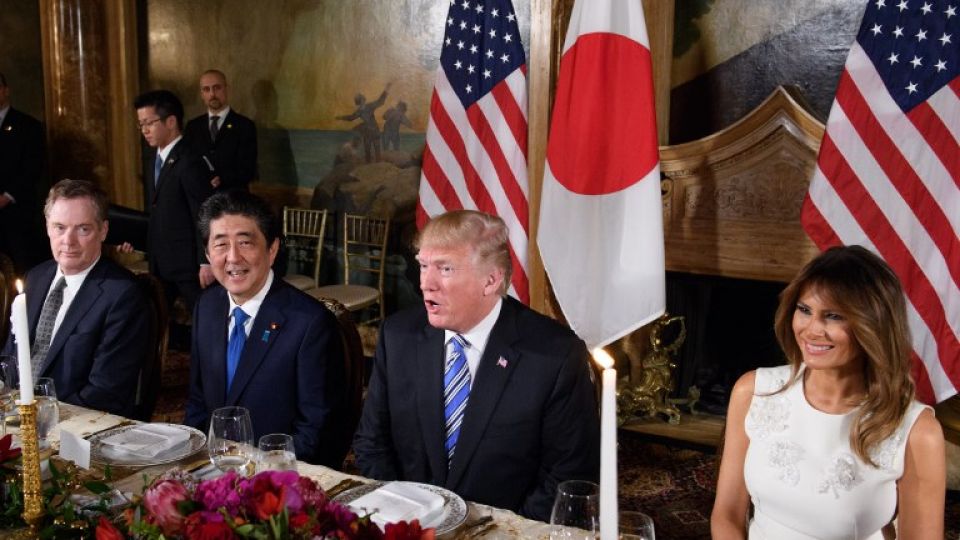April 20, 2018
US president Donald Trump has emerged from a two-day bilateral with Shinzo Abe with a stronger line on North Korea.
Abe’s government declared before the visit that he would push Donald Trump on the North Korea issue after both the US President and his South Korean counterpart Moon Jae-in had made diplomatic progress with Pyongyang in recent months – and threatened to leave Tokyo out of the loop.
Trump’s acceptance of summit talks with North Korea revealed a miscalculation by the Japanese government, which believed the current situation was at a stage for further pressuring North Korea.
According to the Yomiuri Shimbun, Abe himself told those around him that the U.S.-North Korea talks would be held “earlier than I thought.”
North Korean test missiles regularly fly over the Japanese homeland before crashing into the Pacific Ocean. Tokyo is within range of nuclear armed North Korean missiles and both North and South Korea harbor historic animosity against their former colonial master.
Therefore it was imperative that Japan, the United State’s 4th largest trading partner, push the issue with its longtime ally.
A stronger line
Upon his arrival Tuesday afternoon at Mar-a-Lago, Trump’s private estate, Abe held a one-on-one dialogue with Trump accompanied only by interpreters.
“I want to share an understanding on the abandonment of nuclear weapons and missiles by North Korea through complete, verifiable and irreversible means,” Abe stressed at the beginning of the talks
What emerged from the two day bilateral is a stronger line of rhetoric from the President Trump.
Both men confirmed that the two countries would maintain maximum pressure on North Korea, according to the Yomiuri Shimbun.
Trump also pledged to raise the issue of Japanese nationals abducted by North Korea at a summit meeting with North Korean leader Kim Jong Un slated to be held by early June.
In his talk with the media Trump also revealed that the summit might not happen at all.
“If I think that it’s a meeting that is not going to be fruitful, we’re not going to go,” he said. “If the meeting when I’m there is not fruitful, I will respectfully leave the meeting.”
Seoul pushes ahead
While the US and Japan evaluate their positions, Moon Jae-in’s administration in Seoul has gone ahead in their diplomatic courting of Pyongyang.
A summit between Moon and Kim Jong-un is due to take place in the coming weeks with sources in South Korea revealing that a peace treaty between the two countries (who have technically been at war since the 1950s) may be in the works.
Boosted by the prospects for the April 27 inter-Korean summit and the subsequent US-North Korea summit, the two Koreas are seeking to use the meetings as an opportunity to declare an end to the Korean War and replace the armistice agreement with a peace treaty.
“It is one of the ways under consideration to change the security climate on the Korean Peninsula into a more peaceful one,” a senior Cheong Wa Dae official told reporters under the condition of anonymity.
The Moon Jae-in administration is considering putting such ideas into the joint statement to be issued following the summit with North Korea’s leader Kim Jong-un, who expressed willingness to abandon its nuclear arsenal in return for security guarantees for the regime.
The Moon administration also added that North Korea is committed to “complete denuclearisation” and will not make unacceptable demands such as the withdrawal of United States troops stationed in South Korea – seemingly in response to the Abe-Trump bilateral outcomes.


